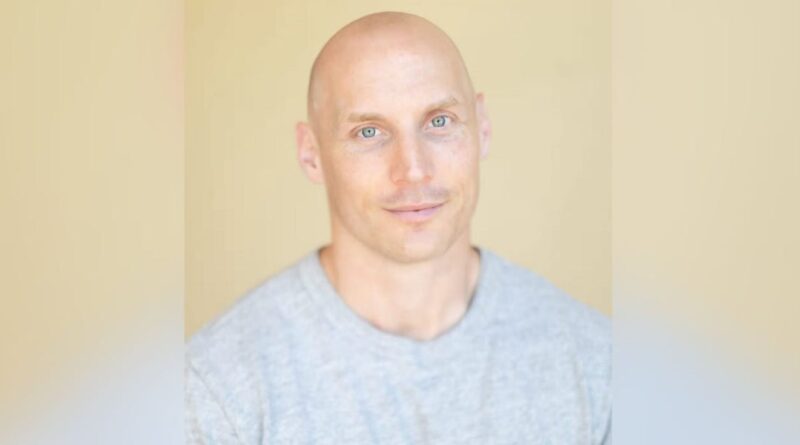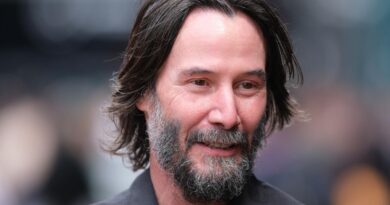I was a VP at Blackrock before I started my own company. I saw 2 types of people in finance that helped me decide to pivot careers.
This as-told-to essay is based on a conversation with 40-year-old Dugal Bain-Kim, a former BlackRock executive who founded a longevity startup in 2021. It has been edited for length and clarity.
My first job in finance was the lowest rung on the European equities team at BlackRock.
I was young, had a full tank of energy, and was just generally excited to have moved from my home in Australia to London. I was pumped to be living in what felt like the center of the world, working in finance. There was a lot of energy that came from the novelty of being able to earn my first real paycheckshaving serious conversations, and just going out and making the best of London outside work.
Around my fourth year at BlackRockI became a VP at the firm, making low six-digit pounds. It felt great. Making decent money was something that was genuinely important to me for my career. It is for a lot of people.
But I started to notice a shift in my energy at work. I’d been focused on getting the promotion for a while, and I got it. Then there was a bit of a come-down. There always is, but it sort of turned more into a bit of a funk.
As I thought about it, I noticed that there were some people in the office who you could tell genuinely loved working in finance.
On the weekend, they read The Financial Times cover to cover, and they chatted to each other about financial statements in the cafeteria. You could just tell that they were doing what they were meant to be doing, and they got a lot of energy from it.
Then you could see that there were other people who, even if they were still pretty good at their jobs, were forcing it. They were doing it from extrinsic motivation, not intrinsic motivation — extrinsic motivation being money, status, promotions, perks, whatever it might be.
As I started to notice that distinction, I definitely saw myself fitting into the second category.
Finance wasn’t what I would be thinking about in my own time. It’s not what I wanted to talk about with people.
Dugal Bain-Kim in 2012. Bain-Kim spent more than five years in finanace before eventually pivoting to the digital healthcare space. Courtesy Dugal Bain-Kim
I also felt that, at least on the investment-management side, a lot of the time, you were sort of this expert observation group that looked at people in the field, building and running companies, and then judged whether they were doing a good job.
In those conversations, I noticed myself getting more and more curious-slash-envious abound the people who were actually in the field.
I was in my late 20s when I left finance. It was kind of a sweet spot in my career, where I’d gotten paid decently along the way, but my lifestyle hadn’t expanded so much that I was tied to the paycheck. I realized that I wanted to be in a sector that gave me multiple ways to win in my career. Meaning that if I worked on something, I would still be proud of the work I’ve done at the end of my career, regardless of success or earnings.
I also wanted to work on something I felt was net beneficial for society and problems that I felt were important, which is a very personal decision.
I have a history of people very close to me having very serious health issues. It’s been a dominant theme for my family: How do you navigate the healthcare system, how do you advocate for yourself, how do you get access to the things that people can get access to if they have a lot of money and connections?
When I started reading about the first generation of digital health companies using technology platforms to solve that problem, it hit very close to home.
In 2021, I founded Lifeforce, a longevity medical program.
There was a little bit of fear at first. It’s a little bit like skiing — when you’re standing on the top of the mountain about to tip your skis over. But honestly, by that point, the greater fear had become the regret of not having tried.
I’m really pleased with the decision. It was definitely the right move and the ideal place for me to be.
I don’t regret my time in finance. It gave me a really good foundation for thinking about companies, how to think about markets, and even how to think about the workplace — what that’s like and how to navigate different office dynamics.
For example, how do you present yourself to more senior people? How do you work with other colleagues? It was a very professional, high-performance training ground that I think was generally very good for me.
I would totally be open to my daughters working in consulting or finance for at least a few years to start their careers. I think it would give them a valuable set of fundamentals that will be useful in so many other ways. But I would also counsel them to be open-minded about whether it’s a long-term or short-term thing.
Those years in the professional world also helped me find out how I’m wired to think about work and what motivates me.
Not everyone wants to work in a deeply mission-driven organization that happens to align with the cause that’s most important to them. Frankly, it’s not actually how a lot of people are wired. There are a lot of people who can actually do really well based on extrinsic motivations. They can feel happy about that, and that’s awesome. Good luck to them as well.
Once you understand that, it starts to inform what sort of “athlete” you are and, therefore, where you should take your career.





